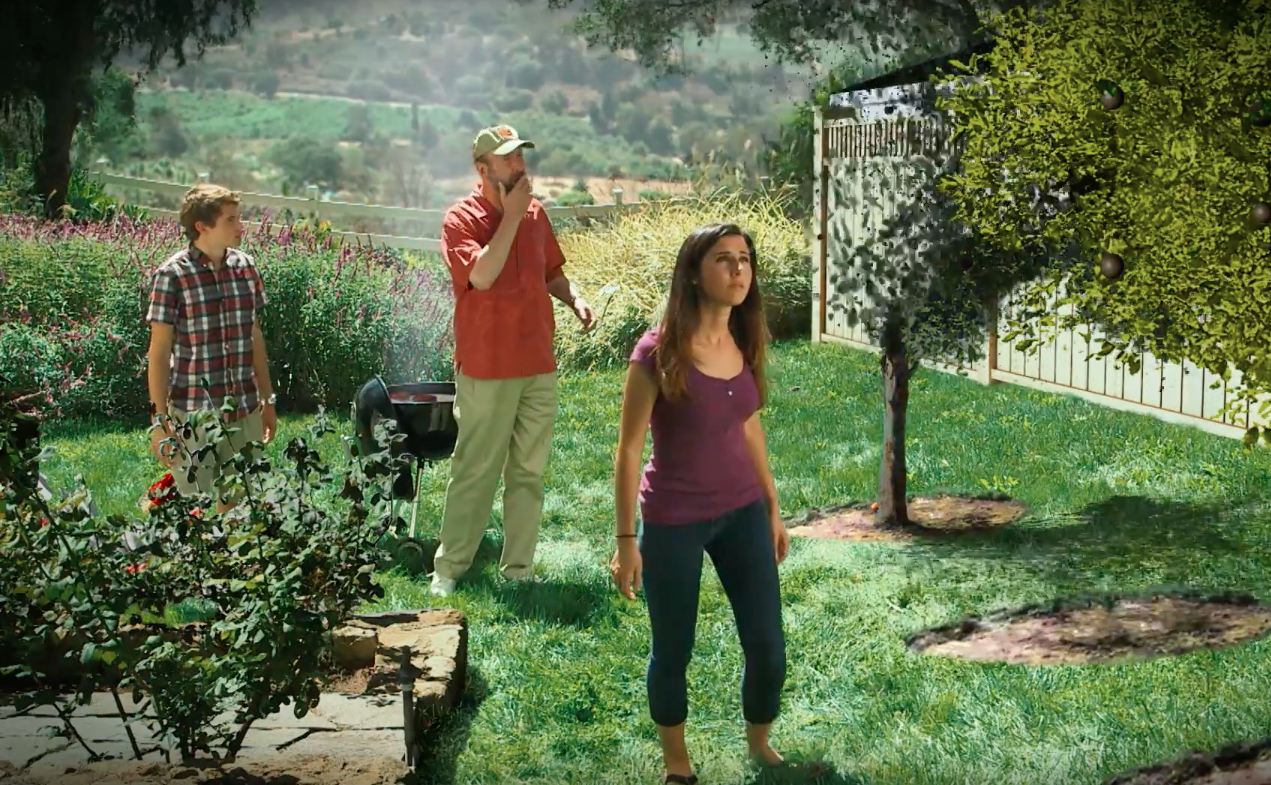By Alyssa Houtby, CA Citrus Mutual Director of Government Relations
Recently, leaders from the California citrus industry and the University of California, Riverside gathered to celebrate the grand opening of a Biosafety Level-3 Lab that will be used by researchers to identify a cure for the devastating citrus plant disease Huanglongbing, or HLB.
The state-of-the-art lab is the product of a partnership between the State’s citrus growers and UC Riverside aimed to protect California citrus trees from the deadly citrus plant disease Huanglongbing, or HLB.
“HLB is the single greatest threat to the future of the California citrus industry,” says CCRF Board Chairman and General Manager Booth Ranches LLC, Dave Smith. “The Biosafety Level-3 Lab is a testament to the industry’s proactive and optimistic spirit. In a matter of months, the citrus industry raised over $8 million to fund the construction of this facility and now, together with our partners at UC Riverside, we are one step closer to finding a cure for HLB.”
Located just 2-miles off campus on Marlborough Avenue, the lab will allow researchers to conduct work with plant pathogens that previously couldn’t be done in Southern California.

ACP (Source: ACP UC IPM)
Construction of the $8 million lab began in 2016 and was entirely funded by the California Citrus Research Foundation through donations by citrus growers and packers.
The grand opening was marked by a ribbon-cutting ceremony and Citrus Industry Appreciation Luncheon at which several university, government, and citrus industry leaders spoke about the significance of the lab to the future of the California citrus industry.
The disease, spread by an invasive insect called Asian citrus psyllid, has been detected in over 1,500 backyard citrus trees in Los Angeles, Orange, and Riverside Counties. Citrus growers are proactively working to keep the disease out of commercial citrus groves until research finds a cure.
Casey Creamer, President of the non-profit grower advocacy group, California Citrus Mutual outlined the scope of the challenge and the extensive effort by citrus growers, federal, state, and local governments, and homeowners to protect all citrus trees.
“California is the largest citrus-producing region in the world that has not been ravaged by HLB. For over a decade, growers have worked proactively to protect the state’s $3.3 billion citrus industry and the millions of citrus trees in backyards. The construction of this lab and the partnership with UC Riverside is a significant milestone in the fight to save California citrus,” said Creamer.
Also represented at the event was the industry-funded Citrus Research Board (CRB). “The industry has invested millions of dollars over the past 10 years into research on Asian citrus psyllid and HLB,” said CRB Chairman Dan Dreyer. “However, research is useless without partners. I’m confident that the partnership between the Citrus Research Foundation, UC Riverside, California Citrus Mutual, and the Citrus Research Board will deliver actual solutions to the industry’s greatest challenge.”
UC Riverside has a long history of collaboration with the citrus industry and is home to the Citrus Variety Collection, the Citrus Clonal Protection Program, and the Citrus Experiment Station which was founded in 1907.
“We are proud to continue the tradition of collaboration and partnership with the citrus industry as we work together to find solutions to HLB,” said UCR Chancellor Kim Wilcox. “Citrus is an iconic part of California’s history, and the Biosafety Level-3 Lab is a natural extension of the mission of UC Riverside to enrich the state’s economic, social, cultural, and environmental future.”
The event was emceed by the Citrus Research Foundation Executive Director Joel Nelsen who praised the industry for its foresight and investment in research. “For over 10 years, citrus growers have partnered with government, homeowners, and the University to prevent HLB from taking hold. The construction of the Biosafety Level-3 Lab and our partnership with UC Riverside is an investment in the future of California citrus. I’m confident now more than ever that our future is bright.”
The collaboration between citrus growers and UCR drew praise by a number of local elected officials as well as State and Federal representatives in attendance.
“Not only does this lab pay homage to Riverside’s rich history in citrus cultivation and research dating back to the establishment of the Citrus Experiment Station in 1907, it builds upon that history to push us to the forefront of research critical to the survival and success of citrus cultivation in the state and nation,” stated Senator Richard D. Roth. “Thank you to UC Riverside, the California Citrus Research Foundation, and others in the industry for your partnership in this critical investment!”
Congressman Ken Calvert, unable to attend the event in person, said in a prepared statement, “The threat Huanglongbing poses to California’s commercial citrus industry cannot be overstated. The opening of the Biosafety Level-3 Laboratory for Huanglongbing Research at UC Riverside is welcome news and a critical step towards protecting our citrus from this devastating disease. All of our citrus stakeholders, including the federal government, must continue to provide the research resources necessary to end this existential threat.”
Four researchers have been approved to begin work in the Biosafety Level-3 Lab. The Citrus Research Foundation and UC Riverside will oversee the current projects as well as the selection of future projects.

